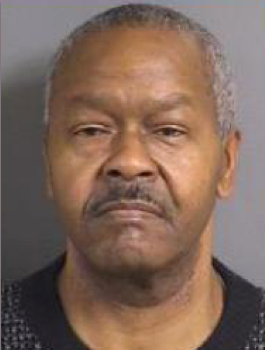The Iowa Division of Criminal Investigation, working in cooperation with the Coralville police, has arrested a man in the 1985 slaying of Lance DeWoody.
On Aug. 13, 1985, police discovered the body of DeWoody, 22, on the floor of a picnic shelter at the University of Iowa Oakdale Campus.
An autopsy was performed, and officials determined cause of death was two gunshot wounds to the head and face. The case was ruled a homicide.
Authorities arrested Anthony Burtch, 57, of Iowa City on Thursday and charged him with first-degree murder.
During the investigation, authorities reportedly determined DeWoody was dating the wife of Burtch, with whom he spent the evening of Aug. 12, 1985. Afterwards, Burtch’s wife returned home, and Burtch left for approximately an hour and a half. Investigators believe Burtch killed DeWoody during this time.
In the time leading up to the homicide, witnesses said they heard Burtch stating he was going to kill DeWoody.
According to the criminal complaint, Burtch initially told investigators a trio of men had harassed him and DeWoody for months leading up to the murder. A witness claimed Burtch provided DeWoody a piece of paper with the names of those men. Investigators were able to locate that piece of paper during the investigation and later determined that the men did not exist.
In January, while being interviewed by a DCI agent, Burtch denied having been harassed by the trio of men prior to the night of DeWoody’s death. DCI agents were able to obtain a sample of Burtch’s DNA to compare with DNA found at the crime scene. At this point Burtch reportedly agreed he “would get buried on the sciences of this thing.”
Burtch is being held at the Johnson County Jail on a $1 million bond.

Coralville Chief of Police Barry Bedford said this case was one Coralville police kept on their radar.
“Over the last 30 years, we’ve reviewed this case three or four times. We were always trying to get a fresh look at it,” Bedford said. “Technology and new information has really helped us come to this point. Back in 1985, we didn’t always have the ability to check for DNA, and even when we did, the results weren’t always accurate.”
Bedford said even with some additional help, the case was a challenge.
“We periodically go back to old cases. We picked up this one in 2013 and started reviewing it again with help of the primary investigator who was in charge of the case in 1985,” he said. “Some of the challenges we had with this cold case had to do with how old it was. The primary investigator — he retired in 1985, and new guys picking up this case don’t know anything about it. It’s also difficult to track down people, people move, get sick, die, memories can go bad. All of these things make it tough.”
Johnson County prosecutor Janet Lyness said witnesses play a crucial role in investigating cases such as this.
“With any cold case, we really have to keep looking for witnesses and make sure that we’re asking them all the right questions. Being able to get the resources fresh and allowing witnesses to recall what statements are true and what aren’t is key to piecing cold cases together,” Lyness said. “We do this job because there are victims still out there, and we don’t want them to be forgotten.”



